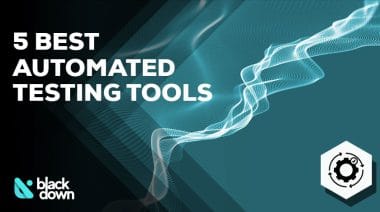Raw HTML is messy. Web scraping tools that convert pages to Markdown turn that chaos into clean, readable text perfect for feeding into LLMs or building knowledge bases.
What used to require custom scripts and hours of configuration can now be done with a simple API call. In this article, I’ll walk you through five popular tools: Simplescraper, ScrapingAnt, Firecrawl, Apify’s Dynamic Markdown Scraper, and Decodo.
What Makes a Good Web-to-Markdown Tool
The tool needs to handle JavaScript-heavy sites, since modern websites use React, Vue, or Angular to render content dynamically. Output quality matters too. Some tools dump everything into Markdown including navigation and footers, while the best ones filter this noise automatically. You also need to consider scale and whether you need a no-code interface or are comfortable with APIs.
Simplescraper: The No-Code Option
Simplescraper is what I recommend to non-developers. It’s a Chrome extension that lets you visually select content to extract. Click elements, and it creates a “recipe” that can scrape similar pages. It uses headless browsers for JavaScript pages, rotates IP addresses to avoid blocks, and can spider through entire sites automatically.
The free plan includes 100 cloud credits monthly (about 50 JavaScript pages) and unlimited browser scrapes. Paid plans start at $39 monthly for 6,000 credits. It isn’t designed for large-scale operations and doesn’t automatically filter navigation content, but for converting blog posts or documentation, it’s accessible and affordable.
ScrapingAnt: The Developer-Friendly API
ScrapingAnt is pure API. You make a GET request to their /v2/markdown endpoint with your URL and API key, and get back JSON with the Markdown text. It handles JavaScript rendering, proxy management, and anti-bot measures automatically.
The free tier is generous: 10,000 API credits monthly (about 1,000 JavaScript pages). The LangChain integration is particularly useful for building RAG pipelines. The main limitation is no automatic content filtering. You get direct HTML-to-Markdown conversion including navigation and sidebars. For developers though, this simplicity means you can call it from any language or integrate it into cloud functions easily.
Firecrawl: The AI-First Solution
Firecrawl is the most feature-rich option, designed specifically for AI applications. It crawls entire websites automatically. Give it a starting URL and it follows internal links to scrape all accessible pages. You can request multiple output formats simultaneously: Markdown, JSON, and screenshots in one API call.
The output quality is excellent. Firecrawl lets you exclude specific HTML tags like navigation or footer elements for clean content. Higher-tier plans allow 50 to 100 parallel requests for scraping thousands of pages quickly. It has official SDKs for Python and Node.js, plus connectors for LangChain, LlamaIndex, and other AI frameworks.
After a 500-credit trial, the Hobby plan starts at $19 monthly for 3,000 pages, and Standard is $99 monthly for 100,000 pages. For production AI applications, the cost is justified by not building your own infrastructure.
Apify Dynamic Markdown Scraper: The Content Quality Champion
Apify’s Dynamic Markdown Scraper produces the cleanest output. It automatically removes navigation menus, footers, ads, and clutter, focusing only on main article content. The result reads like a clean document, not a converted webpage, with accurate heading structure, lists, and code blocks.
You configure it through a web interface with your start URLs and crawl limits. No coding required. The pricing is complex: $19 monthly for the actor plus an Apify subscription for compute units. The free tier gives $5 in credits for testing. For regular use, the Starter plan at $49 monthly provides 100 compute units for several hundred pages.
The limitation is platform lock-in. For migrating content or building LLM training datasets though, the automatic filtering saves hours of cleanup.
Decodo: The Balanced Approach
Decodo strikes a balance between power and usability with both a no-code web dashboard and developer-friendly API. It supports multiple output formats including Markdown, JSON, and CSV. The service uses headless Chrome and includes automatic proxy rotation and CAPTCHA solving. The dashboard generates code snippets in Python, Node, and cURL for easy integration.
Pricing is usage-based and economical: around $0.95 per 1,000 requests at scale (10,000 pages costs about $10). There’s a free trial but no permanent free tier. Decodo integrates with n8n and LangChain, backed by Smartproxy’s 125 million IPs.
The drawback is no content filtering by default. You get full HTML-to-Markdown conversion including all page elements, and there’s no built-in crawler.
Making Your Choice
Here’s a quick comparison to help you decide:
| Feature | Simplescraper | ScrapingAnt | Firecrawl | Apify MD Scraper | Decodo |
|---|---|---|---|---|---|
| Best For | Non-developers | Developers & RAG | AI applications at scale | Clean content quality | Mixed teams |
| User Level | Beginner | Intermediate | Intermediate | Beginner | Beginner to Intermediate |
| Output Quality | Good | Good | Excellent | Excellent | Good |
| Content Filtering | Manual | None | Configurable | Automatic | None |
| Speed & Scale | Low to Medium | Medium | High | Medium | Medium |
| Site Crawling | Yes | No | Yes | Yes | No |
| Free Tier | 100 credits/month | 10,000 credits/month | 500 credits (one-time) | $5 credits | Trial only |
| Starting Price | $39/month | $19/month | $19/month | $49/month + $19 actor | Pay-as-you-go |
| AI Integrations | Limited | LangChain | LangChain, LlamaIndex, etc. | Apify MCP | LangChain, n8n |
In my own work, I use Simplescraper for quick one-off scrapes, Firecrawl or ScrapingAnt for production systems, and Apify’s scraper when I need the cleanest output.
Final Thoughts
Web scraping has become much more accessible. Tools that once required deep technical knowledge are now simple APIs or no-code platforms. The key is matching the tool to your needs. Don’t pay for enterprise features if you’re scraping 100 pages monthly, but don’t try to scale a no-code tool to handle 100,000 pages either.
Always respect the websites you’re scraping. Use reasonable rate limits, respect robots.txt files, and consider the legal implications. I recommend trying at least two or three of these tools to see which fits your workflow best. The time you invest in choosing the right tool will pay off in cleaner data and more successful projects.
Thomas Hyde
Related posts
Popular Articles
Best Linux Distros for Developers and Programmers as of 2025
Linux might not be the preferred operating system of most regular users, but it’s definitely the go-to choice for the majority of developers and programmers. While other operating systems can also get the job done pretty well, Linux is a more specialized OS that was…
How to Install Pip on Ubuntu Linux
If you are a fan of using Python programming language, you can make your life easier by using Python Pip. It is a package management utility that allows you to install and manage Python software packages easily. Ubuntu doesn’t come with pre-installed Pip, but here…











